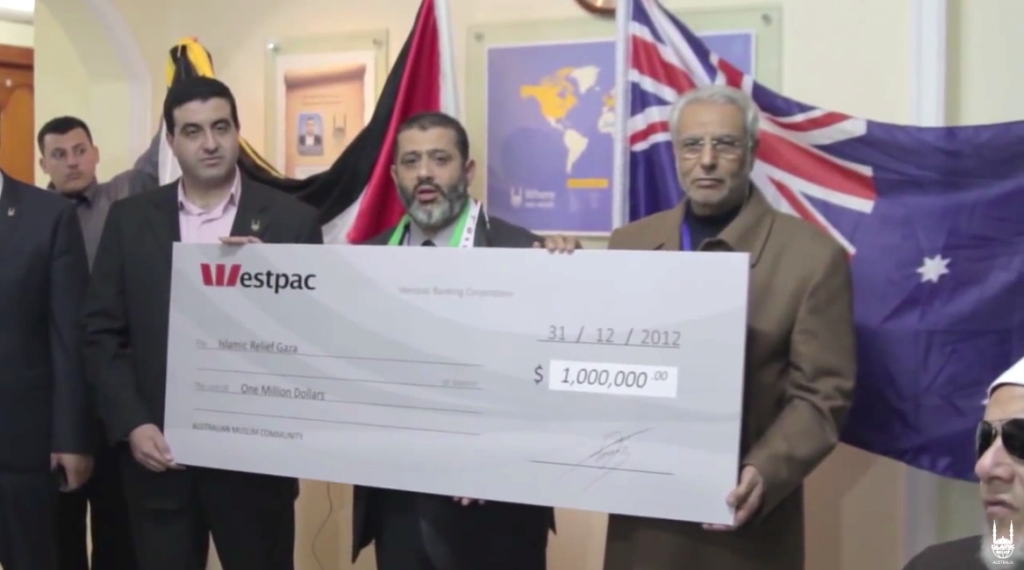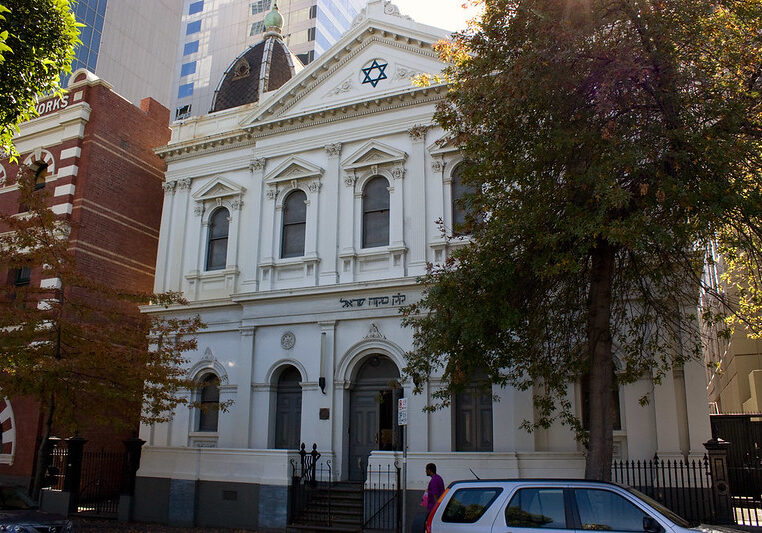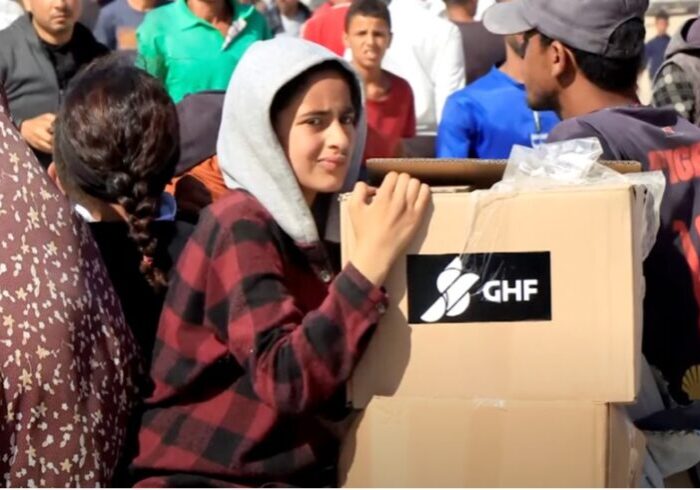Australia/Israel Review, Featured
Humanitarians or Hamas sympathisers?
Aug 30, 2018 | Naomi Levin

Islamic Relief Australia is a local branch of a global charity – Islamic Relief Worldwide. It was established in Sydney in 2010 and has expanded to include an office in Melbourne and Brisbane. It funds humanitarian programs in Islamic communities both locally and in Asia, the Middle East, Europe and Africa.
Islamic Relief Australia has retained close ties to UK-based Islamic Relief Worldwide. In 2016, Islamic Relief Australia provided around $3.1 millionto Islamic Relief Worldwide. This is almost half of Islamic Relief Australia’s total expenditure on international aid and development in 2016.
But why does this matter?
Numerous question marks have been raised about the conduct and associations of Islamic Relief Worldwide. In fact, the organisation was banned from operating in Israel and the West Bank in 2014 after the Shin Bet found evidence Islamic Relief Worldwide provides funding for Hamas and has connections to Hamas operatives.
At the time, Islamic Relief Worldwide denied the Shin Bet’s findings and commissioned a report to discredit them. The supposedly independent authors of the report were never revealed and the report was never published, but Islamic Relief Worldwide maintained that the report showed there was not a “shred of evidence” linking the organisation to terrorist groups. AIJAC understands that Israel’s ban of Islamic Relief Worldwide remains in place, despite legal action being taken to overturn it.
This article will reveal further links between Islamic Relief Australia and Hamas in Gaza. These links raise questions about the charity’s compliance with the Australian Council for International Development in Australia (ACFID) code of conduct, of which it is a signatory.
Other researchers have also looked at links between Islamic Relief Worldwide and the Muslim Brotherhood, an Islamist movement that originated in Egypt in the 1920s but has since spread globally. Hamas is very much a part of the Muslim Brotherhood.
As a UK Parliamentary Inquiry into the Muslim Brotherhood in 2015 noted, “The Hamas founding charter claims they are the Palestinian branch of the Muslim Brotherhood and the Muslim Brotherhood treat them as such.”
This article will look in more detail at these concerns and consider, for example, whether it is appropriate that Islamic Relief Australia be awarded government grants, as it was in 2017.
Hamas sympathisers, or even supporters?
In December 2012, Islamic Relief Australia took 22 Muslim leaders – including the then Grand Mufti of Australia Sheikh Dr Ibrahim Abu Mohamed and the most recent Grand Mufti of Australia Sheikh Abdel Aziem Al-Afifi – to Gaza.
Once in Gaza, the Australians visited a number of sites including those that had been destroyed during Operation Pillar of Defence a few weeks earlier.
As the delegation made its way through the dusty streets of Gaza, metallic green Hamas flags flew against the grey buildings. The group visited a school, government buildings and homes that had been recently destroyed during the short war.
It is true that Operation Pillar of Defence resulted in much destruction on both the Israeli and Gazan sides. However, it seems at no point did the Islamic Relief Australia delegation learn – or acknowledge – what the United Nations Office of the High Commissioner for Human Rights found, namely that the Gazan terrorists drew fire to those targets by sending rockets over the border from within populated areas.
Even more disturbingly, the Islamic Relief Australia group held several apparently very friendly meetings with senior Hamas officials. The delegation, which included many current, influential Australian Islamic leaders, met Hamas leaders Ismail Haniyeh, Ismail Radwan and Marwan Abu Ras.
Haniyeh has close links to Hamas’ military operations and was recently put on the US State Department’s terrorist list. In 2014, he told Gazans, “Hamas is the cannon and we are the ammunition” before calling for Hamas’ militia to strike Tel Aviv, among myriad other calls to violence.
His colleague, Radwan, told Israelis in 2009, “Gaza will be your cemetery, God willing”. In 2014, he argued in favour of Hamas’ right to kidnap Israelis. In 2017 he said that Hamas would not recognise Israel’s right to exist and said all of Jerusalem belongs to the Palestinians. In May 2018, he incited Gazans to violence on the Israeli border and most recently, he represented Hamas at a meeting with Gholamhossein Gheybparvar, the deputy to Gen. Qassem Soleimani, commander of the al-Quds Force of the Iranian Revolutionary Guard Corps, Iran’s principal agency for exporting terrorism and insurgency abroad.
Hamas MP Marwan Abu Ras – who also addressed delegates during the trip – is known for his antisemitic rhetoric. He appeared on Hamas’ al-Aqsa TV calling Jewish people the “filthiest nation” who send their “AIDS-infected girls to fornicate with Muslim youths”, and then prayed to Allah to “destroy the criminal Jews”. In 2003, Abu Ras was also the host of a meeting of senior Hamas leaders – including Sheikh Ahmed Yassin and Ismail Haniyeh – when his home was targeted in an Israeli airstrike. These are not statesmen, these are violent leaders of a terrorist group.
At the end of its Gaza trip, the Islamic Relief Australia delegation presented a $1 million cheque to Islamic Relief Gaza – an organisation that has been reported to have direct links to Hamas.
Islamic Relief Australia is open about providing humanitarian support for Gazans – and there is indeed much need for humanitarian aid there, with the enclave’s Hamas rulers spending their budget on rockets and tunnels to target Israel, rather than on basic necessities for the local population. But it is worrying that the Australian charity sent a delegation to the troubled enclave, failed to acknowledge the role Hamas has played in bringing violence on the territory, and more worryingly, were feted by its leaders face-to-face.
This, coupled with moves by global banking giants HSBC and UBS in 2012 and 2016 respectively, to close down Islamic Relief Worldwide bank accounts over fears they could be funding terrorism, raises real questions about the destination of Islamic Relief Australia funds.
Islamic Relief Australia does publish annual reports, in line with its legal obligations, that detail its expenditure. However the exact destination of this aid – particularly to trouble spots like Gaza – is not disclosed. This makes it extremely difficult to track the money from collection from a generous donor in Sydney or Melbourne to its destination in Gaza.
Links to Muslim Brotherhood and other possible extremists?
Volumes have been written about the Muslim Brotherhood and the exact nature and influence of this widespread yet often secretive organisation, and its various local branches. Despite any such debates, what is clear is that the Muslim Brotherhood has been linked to terrorism in the Middle East, not least through the ongoing support for Hamas from many Muslim Brotherhood members and branches.
Why is this relevant to Islamic Relief Australia? Islamic Relief Worldwide, as well as its closely-affiliated Australian branch, appears to have both close historical and current links with supporters of the Muslim Brotherhood.
Ibrahim el-Zayat, a man of Egyptian heritage, is a current director of Islamic Relief Australia and former director of Islamic Relief Worldwide. Raised in Germany and living there today, he is also leader of the Islamic Community of Germany. Two books about the Muslim Brotherhood (Barry Rubin’s The Muslim Brotherhood: The organisation and politics of a global Islamist movementand Alison Pargeter’s The Muslim Brotherhood: From Opposition to Power) identify el-Zayat, and the German organisation he leads, as having ties to the Muslim Brotherhood. Rubin’s book claims German security services have confirmed the links between el-Zayat and the Brotherhood, but el-Zayat denies an association.
If those links are indeed correct, el-Zayat would certainly not be the first Islamic Relief figure with links to the Muslim Brotherhood. Islamic Relief Worldwide founder Hany El-Banna has longstanding links to the Muslim Brotherhood, citing Muslim Brotherhood ideologue Sayed Qutb as one of his inspirations and also chairing other organisations close to the Muslim Brotherhood. Islamic Relief Worldwide co-founder Essam El Haddad was arrested in Egypt in 2013 after serving as a senior foreign policy adviser to Egypt’s short-lived Muslim Brotherhood President Mohamed Morsi. Prior to this, while still an Islamic Relief Worldwide trustee, El Haddad was reportedly a member of the Muslim Brotherhood’s governing Guidance Bureau.
Playing by the rules?
Islamic Relief Australia is regulated in a number of ways. As a registered Australian charity, it is subject to the Commonwealth Charities Act 2013. As a member of ACFID, it must comply with its code of conduct.
Under the Charities Act, Islamic Relief Australia is breaking the law if it is “engaging in, or promoting, activities that are unlawful or contrary to public policy”. In Australia, regrettably, only the so-called military wing of Hamas, not the organisation as a whole, is banned. So if there was proof that Islamic Relief Australia was funding Hamas, that evidence would need to show it is funding the military wing specifically.
Additionally, in Australia, the Muslim Brotherhood is not proscribed. However, if it was proven that Islamic Relief Australia was providing material support to Hamas, a case could be made that its operations are contrary to public policy, notably national security, and it is therefore not complying with the Act.
Turning to the ACFID code of conduct, which is self-regulated, it could be argued that Islamic Relief Australia breaches the “transparency” clause. AIJAC was unable to find any assurance in Islamic Relief Australia’s publicly available materials that no Australian donor dollars are finding their way into the hands of Hamas in Gaza.
There is also no declaration showing the complete affiliations of Islamic Relief Australia board members. According to ACFID, Islamic Relief Australia is required to “openly share information about [its] organisations and [its] work to all [its] stakeholders and to the public.” Given its published documents don’t indicate the destination of its aid to Gaza, it could be argued that it is failing to comply with this area of the code.
As far as AIJAC has been able to discover, Islamic Relief Australia has received only two small government grants, one from a Sydney local council for local work on domestic violence and another from the Commonwealth, though apparently not from the foreign aid budget. It may be prudent, if Islamic Relief Australia is to continue receiving government support, that the organisation makes full disclosures – or admissions – so Australians know exactly where their money is going in Gaza, especially with the Shin Bet’s question marks still hanging over Islamic Relief Worldwide.
What needs to be done?
For a start, Islamic Relief Worldwide, and its Australian arm, could do much more to provide assurances about its aid recipients in Gaza. There are serious question marks about just who its Gazan partners are given the Islamic Relief Australia delegation held friendly meetings with top Hamas leaders during a visit to the territory. The reported Muslim Brotherhood links of an Islamic Relief Australia board member further increases concerns, given the known ties between the Muslim Brotherhood and Hamas. As required by the Australian Council for International Development, greater transparency is essential. In order to reassure Australian donors – who contribute around $7 million a year to Islamic Relief Australia – and the wider community concerned about national security, the charity needs to be more transparent and provide more detail about the recipients of its aid, especially in Gaza.
If just one Australian dollar is finding its way into Hamas coffers, that should be cause for grave concern, not only in donor circles, but for the relevant Australian law enforcement authorities.
Tags: Australasia, Australia, NGOs, Palestinians






